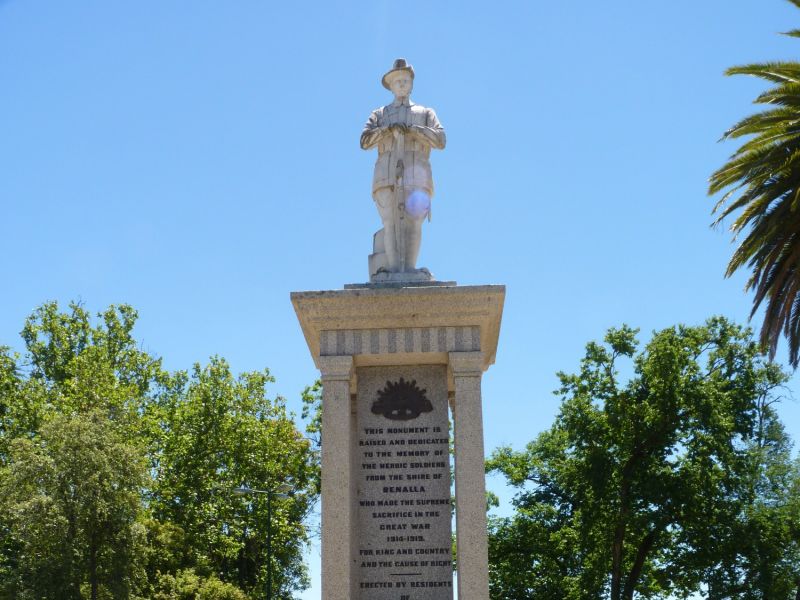Acting Corporal Desmond Cecil Tully, 2/22nd Australian Infantry Battalion
Desmond “Des” Cecil Tully was born on 18 August 1918 in Wangaratta, Victoria, son of Emily and Harcourt Tully.
Desmond’s father worked for the Lands Department, and the family eventually came to live in Benalla after postings in Melbourne and Wangaratta.
Tully was an athlete, playing football with the Benalla All Blacks and Euroa United FC. He was also a keen cyclist, riding for the Euroa Club. In 1939, he had a serious accident during a race, breaking his collarbone and badly smashing his bicycle.
Tully enlisted in the Second Australian Imperial Force at Royal Park on 12 August 1940 and was posted to the 2/22nd Battalion. He left Sydney aboard the troopship Katoomba on 11 March 1941.
The 2/22nd Battalion arrived at Rabaul, the administrative centre of New Britain. Together with other Australian and New Guinea units, they formed the “Lark Force”.
Lark Force protected nearby airfields and a seaplane, as well as early warning of Japanese movements through the islands to Australia’s north.
On 4 September 1941, Tully was promoted to acting corporal.
The Japanese bombing of New Britain began in early January 1942. Lark Force withdrew from Rabaul, waiting on the western shores of Blanche Bay for the inevitable Japanese landings.
These began at 1 am on 23 January. By 9 am, communication failures and overwhelming Japanese strength had destroyed the cohesion of Lark Force. The commander ordered a “every man for himself” withdrawal. Unprepared for retreat, Lark Force disintegrated.
Over the following days, groups ranging from company-strength to individuals, sought escape along New Britain's north and south coasts. Some found small boats and got away, others were picked up by larger vessels operating from New Guinea. Around 400 members of Lark Force managed to return to Australia.
Sadly, Desmond Tully was not among them. He was initially declared missing, and news of his fate was slow to emerge. In April 1942, his family heard from a soldier returned to Australia from Rabaul that Desmond had managed to escape, and in October 1943, that he was a prisoner of war.
Two years later, in October 1945, Sydney Probate Court received an affidavit from Lieutenant Colonel B. J. Dawson stating that in February 1942, Tully and a plantation manager named Brian Sweetapple had planned to follow the coast to the evacuation port.
Dawson returned to New Britain in late 1944 and talked to the headman of Pul Pul Village. He said that after an argument about a canoe, men from his village had murdered Tully and Sweetapple while they slept and thrown their bodies into the sea. When another man from the group returned from a search for food, he was killed and his body hidden in the bush.
Desmond Tully was 23 years old.
Today he is commemorated at the Rabaul Memorial.
Duncan Beard, Editor, Military History Section
Image: Rabaul, New Britain, 1945-09-11. Troops of 22 infantry battalion moving through Rabaul on a patrol across tunnel hill road to secure the area.
 Australian War Memorial
Australian War Memorial